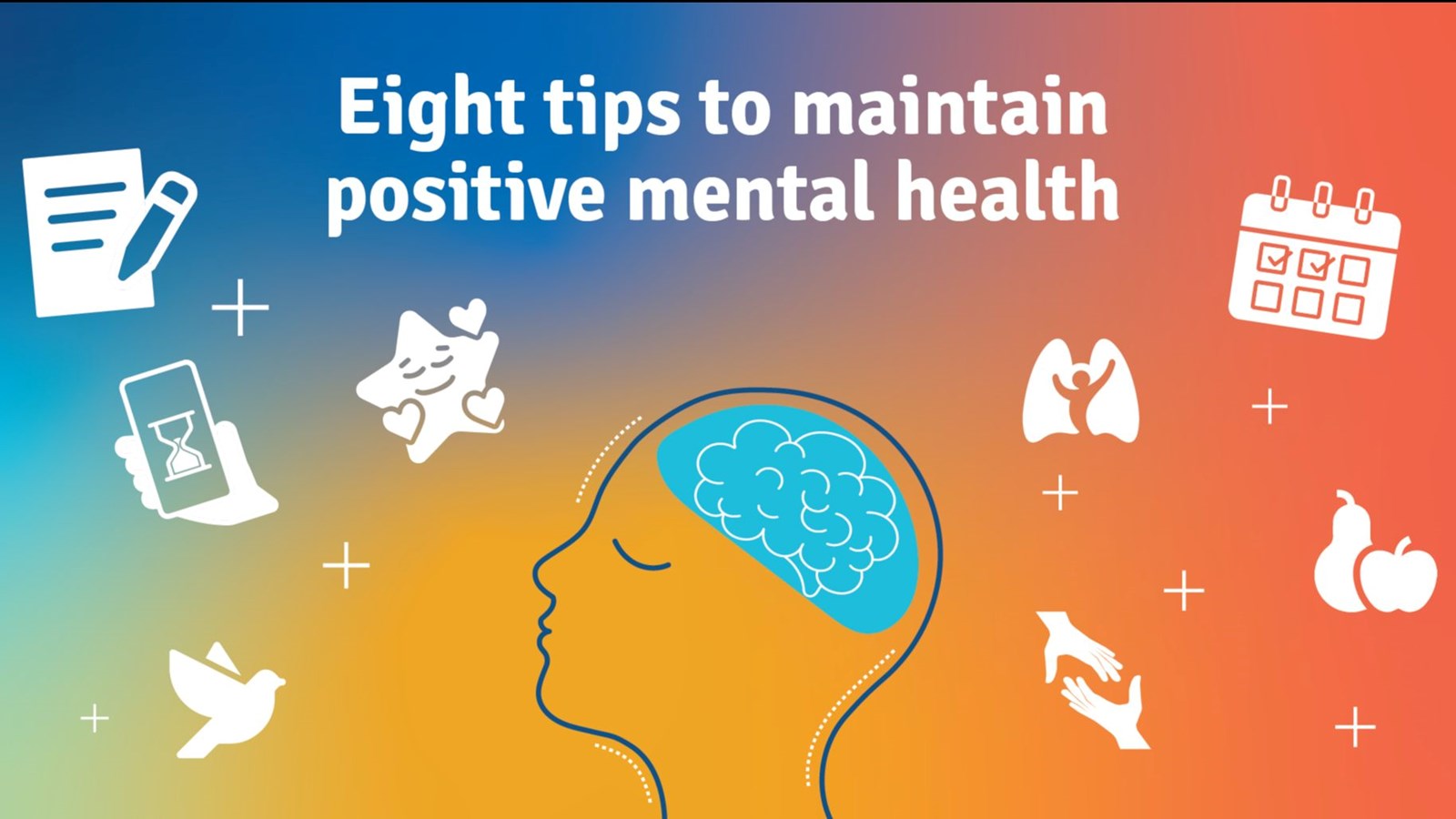Eight tips to maintain positive mental health

To mark World Mental Health Day on October 10, educators and counsellors throughout the District share some recommended tips for maintaining positive mental health and well-being. Equipping yourself with strategies to maintain a positive mindset is as important for mental health as exercise is for physical health. Below are eight practical tips that you can use to manage stress and help others who may be struggling.
1. Be mindful and present
Taking time to be mindful and staying present helps reduce stress and negative emotions. Below are some techniques to try:
- Take mindful breaks
- Use deep breathing to reset your mind; close your eyes as you breathe and follow your breath as it moves through your body, this helps focus your mind on your body
- Use the 5-4-3-2-1 exercise when you are worried or anxious: name five things you can see, four things you can touch, three things you can hear, two things you can smell and one thing you can taste
- Practice belly breathing; slowly breathe in through your nose (as though smelling chocolate chip cookies) and out through your mouth
2. Prioritize self-care
Prioritizing self-care helps manage daily stressors. There are many ways to practice self-care, here are just a few suggestions:
- Talk to a friend
- Take breaks
- Use positive self-talk and be kind to yourself
- Get adequate sleep and exercise
- Release stress through physical or calming activities
- Get creative – dance, make art and listen to music
3. Name your feelings
Recognizing and identifying feelings can help manage emotions. Acknowledge that feelings are temporary and can be managed using various strategies including mindful breathing, taking a walk or doing something you enjoy.
4. Recognize what you can and can’t control
Remind yourself not to dwell on things that are out of your control can help you maintain a positive outlook. Try to focus on things that you can control and not on circumstances that are beyond your control. This can bring perspective and realign your focus.
5. Practice gratitude
Recognizing the things that you are grateful for and writing them down is one way to practice daily gratitude. Start volunteering or do something to help others; showing kindness and helping others can provide a boost to your own mental health.
6. Take tech and social media breaks
Be mindful of screen time – computer, phone, TV, iPad – it all adds up. Pay attention to what you spend time watching or reading as too much of some things, like troubling news or videos, can negatively impact your mood.
7. Hydrate and make healthy food choices
Staying hydrated and eating well helps you feel your best. Taking care of your body everyday impacts how you feel both physically and mentally. Have a drink of water and a healthy snack as a reset break.
8. Ask for help
Connecting with others gives a sense of belonging. Sharing stories, worries and burdens can help you feel less alone and more connected. Reaching out to someone you trust can make a huge difference to your overall well-being.
Many of these tips are included in Episode 2 of our podcast, After the Bell. The episode, from October 2022, focuses on mental health in students and features a discussion on the topic with two District counsellors. Give it a listen right here!
